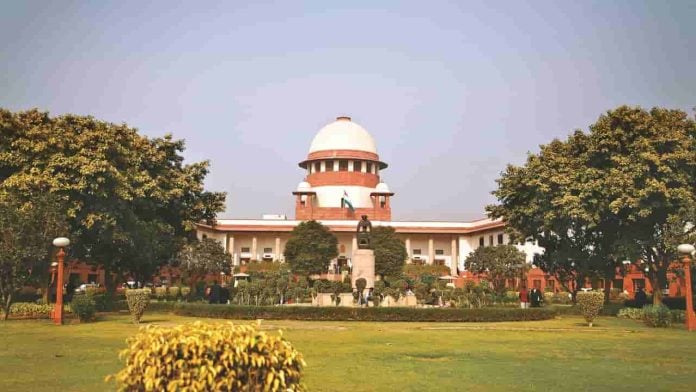The Shiromani Gurdwara Parbandhak Committee (SGPC) on Tuesday filed a petition in the Supreme Court, seeking review of its September 20 verdict, which had upheld the constitutional validity of the Haryana Sikh Gurdwara Management Act, 2014.
On September 20, the Bench of Justice Hemant Gupta and Justice Vikram Nath had dismissed the petitions, which challenged the constitutional validity of the Haryana Sikh Gurdwara (Management) Act, 2014.
The Act had created a separate juristic entity for the management of historical gurdwaras in Haryana mentioned in Schedule I; gurdwaras having income of more than Rs 20 lakh in Schedule II and those having an income of less than Rs 20 lakh in Schedule III.
The Haryana Sikh Gurdwara Management Bill, 2014, says that it is an earnest effort to provide a legal procedure by which the gurdwaras may be brought effectively and permanently under the exclusive control of Sikhs of Haryana for their proper use, administration, control and financial management reforms.
It was pointed out that the Sikh gurdwaras in the state were being governed by the provisions of the Sikh Gurdwaras Act, 1925, and the rules and regulations made thereunder.
However, due to demands of Sikhs in Haryana, which were examined by two committees, it was decided to introduce the Bill in terms of powers conferred under Article 246 read with Schedule VII, List II, Entry 32 of the Constitution, as also in pursuance of Section 72 of the Punjab Reorganisation Act, 1966. Thereafter, the Haryana Act was enacted and came into force on July 14, 2014.
In 2014, a petition was filed in the Supreme Court by Harbhajan Singh, a member of the Shiromani Gurdwara Parbhandak Committee.
The SGPC also filed a writ petition in 2019, challenging the same Act. The grounds for the challenge was that the Haryana Act was against the statutory provisions of the 1966 Act and divisive in its intention to create dissentions among the followers of the Sikh religion.
The writ petition was subsequently amended to challenge the Haryana Act on the ground of infringement of fundamental rights conferred on the petitioner under Part III of the Constitution. The second petition was by the SGPC challenging the Haryana Act on almost similar grounds.
In the light of arguments addressed, the Bench of Justice Hemant Gupta and Justice Vikram Nath found the following questions arising for consideration: Whether Section 72 of the Punjab Reorganisation Act, 1966, and Sections 3 and 4 of the Inter-state Corporation Act, 1957, were transitional provisions to meet the immediate requirement of the issues arising out of the creation of separate states.
For this, the Court observed that the 1957 Act was a statute to empower the Centre to issue directions from time to time due to the creation of separate states. It defines “inter-State corporation” as any corporate constituted under any of the Acts specified in the Schedule and functioning in two or more states by virtue of Section 109 of the 1956 Act.


